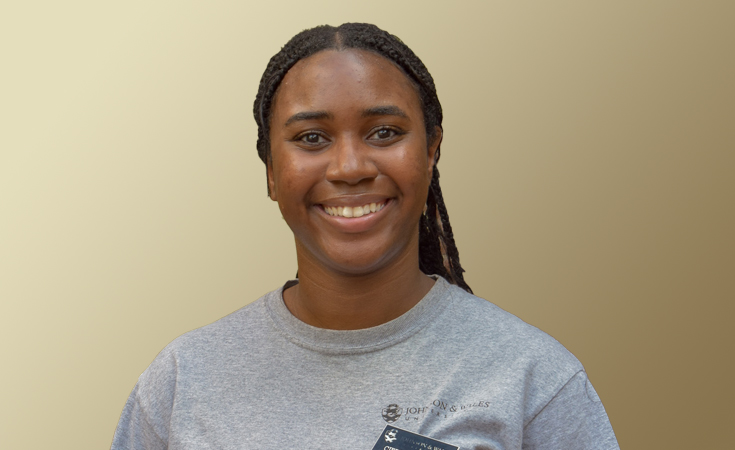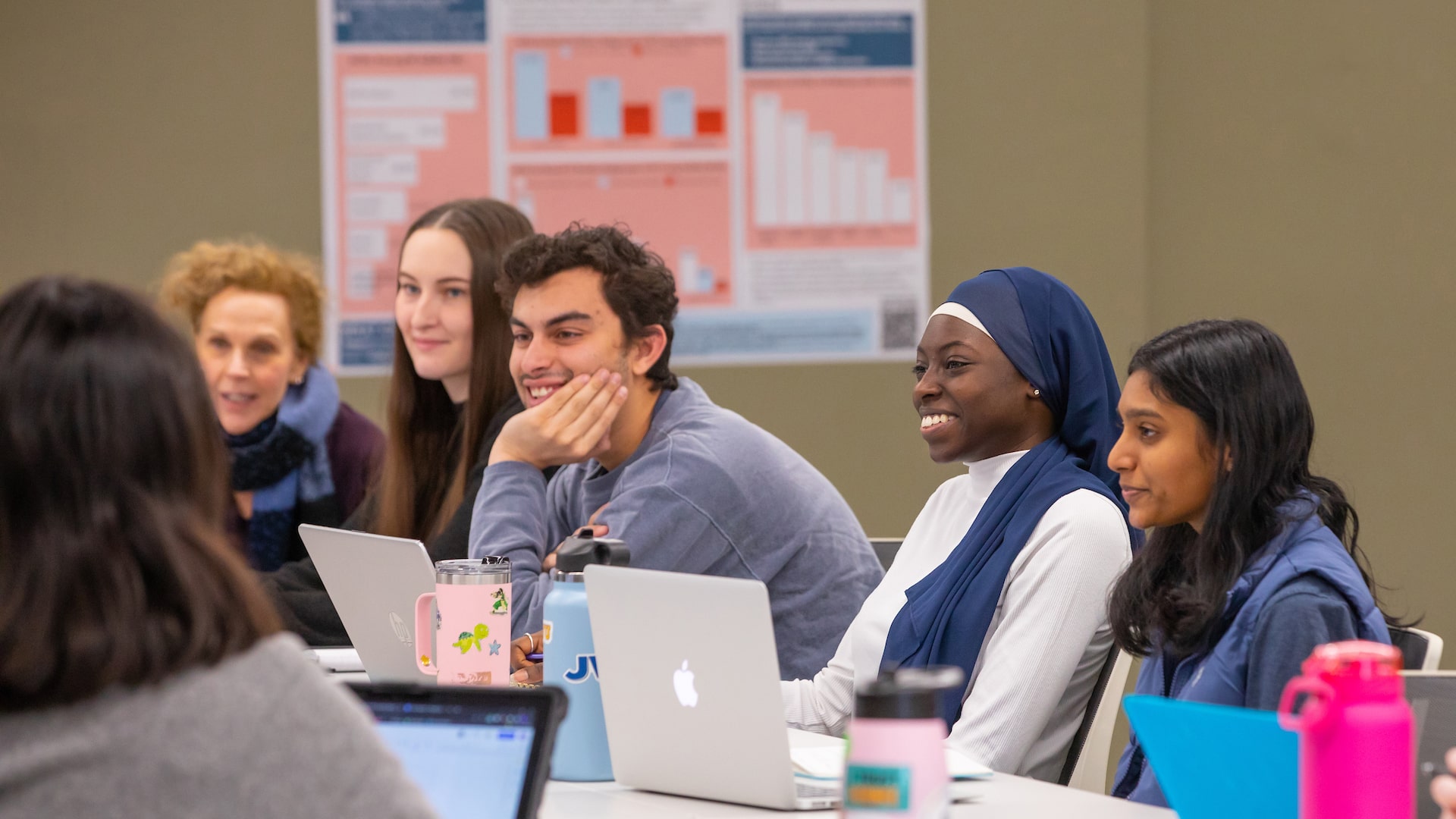Study Examines Correlation between Brain Injury and Problem Gambling
Research
“Brain Injury & Problem Gambling among Rhode Island Young Adults,” Rhode Island Medical Journal, June 2025
Researchers
Professor Jonathan K. Noel, Ph.D., M.P.H.
Postdoctoral Teaching & Research Fellow Kelsey A. Gately, OTD, OT/R
Cierra B. Bradford ’26
Haylee A. Canadas ’25
Associate Professor Samantha R. Rosenthal, Ph.D., M.P.H.
Project Objective
Cierra Bradford and Haylee Canadas, current students in JWU’s Healthcare Administration and Health Science programs, contributed to a study led by Professor Noel examining if Rhode Island young adults who have incurred a brain injury are more likely to develop gambling problems.
The study’s goal was to understand if having a past head injury — like a concussion — is more likely to influence an individual to engage in risky or harmful gambling behaviors. Researchers wanted to find out if this link persists even when other factors like age, employment or gender identity are considered. By doing so, they hoped to identify a group of young adults who may need extra support or screening to prevent gambling-related harm.

Project Goals & Skills
The goal of this project was to explore whether young adults who have experienced a brain injury are at higher risk for problem gambling. The study aimed to identify if this relationship exists even after accounting for other factors like age, gender identity and employment.
The student researchers (including Cierra Bradford ’26, at near right) worked with real-world survey data from more than 1,000 Rhode Island young adults and used statistical methods like logistic regression to analyze the results. They gained skills in designing public health research questions, handling large datasets, and interpreting complex relationships between health behaviors. The students also developed an understanding of how brain injuries can affect decision-making and impulsivity. Overall, the project helped strengthen their abilities in data analysis, critical thinking, and applying public health principles to behavioral health issues.
“Research for me has become an essential part to what I wish for a future career and my ambitions to apply that research to developing future public health initiatives and policies.”
Results & Future Implications
The study found that young adults with a history of brain injury were nearly four times more likely to experience problem gambling. This association remained significant even after controlling for other factors like age, employment and gender identity.
Problem gambling was also more common among unemployed individuals and cisgender heterosexual males, while cisgender heterosexual females had a much lower risk. These findings suggest that brain injury is an independent risk factor for problem gambling in young adults. Future efforts should focus on routine gambling screenings in healthcare settings, especially for patients with a history of brain injury. Tailored prevention and treatment programs are needed to address the unique vulnerabilities of this population and reduce gambling-related harm.
The Benefits of Working on Research
Bradford noted the benefits of working with the Center for Student Research & Interdisciplinary Collaboration (CSRIC): “Working on research has grown me as a student, learner, and advocate for public health. It has shown me the possibilities I can achieve and the privilege it is to learn from other research fellows and faculty. It has opened opportunities for me for future employment and has helped me apply what I am learning in the classroom in the real-world. Research for me has become an essential part to what I wish for a future career and my ambitions to apply that research to developing future public health initiatives and policies.”
Top Inset: Cierra Bradford '26, a current student in JWU’s Healthcare Administration Program.
Read the Published Study Explore Health Science Explore Healthcare Administration

